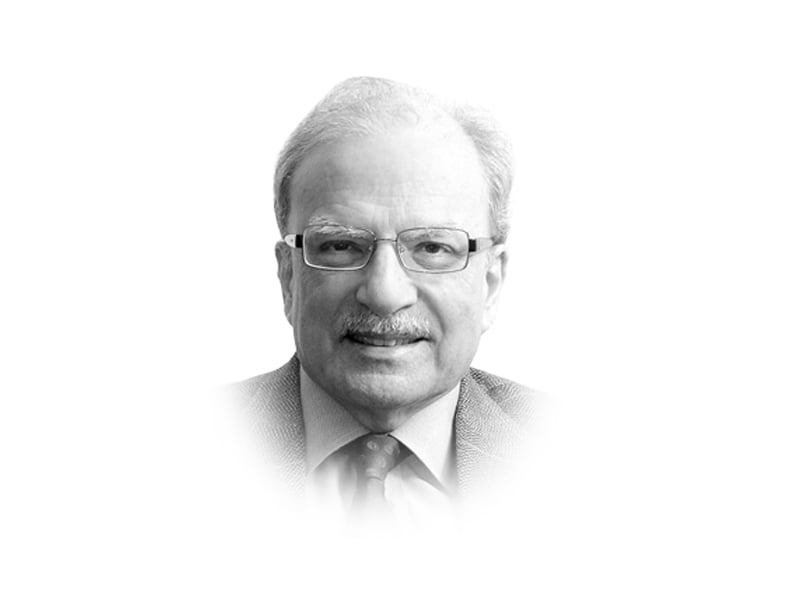
Some years ago Anatole Levine, a journalist-turned-academic, wrote a lengthy account of politics in Pakistan in a book titled Pakistan: A Hard Country. The hard in the book’s title had several meanings. Pakistan was a hard country to understand. It was hard as it was resilient and would not easily succumb to some of the forces that were operating to break it. It was hard in the way its people treated others outside their family, community cluster, ethnic group, and tribe. Levine argued that political loyalties did not stretch much behind the baradaris. That was how people voted and that was the basis of much the policymakers did once they were in office. That may have been the old system. It is my contention that this system no longer works. Society has been churned around to such an extent that new loyalties have surfaced.
In this context a couple of things are worth noting. Large workers’ migration to the Middle East began in the mid-seventies. This was the time when construction booms began in the countries that had windfall gains in their incomes as a result of the several-fold increase in the price of exported oil. Since that time, I estimate that half a trillion dollars of remittances were sent by the workers to their families who stayed back in Pakistan. The Middle Eastern countries did not allow the workers to bring in their families. They were brought in on limited-time contracts and new recruits replaced those returning. Most of those who came were poor but the money they sent back made it possible for their families to graduate to the middle class status. My guess is that this social transformation involved at least 5 million households or 20 to 25 million people.
Pakistani sociologists need to study this new middle class,in particular their location, aspirations, and demands. K-P province and northern districts of Punjab have a large number of such people. A significant number of them are from the country’s major cities. They form a voter-block unlike any Pakistan has seen in its political history. They don’t have fixed political affiliations. They don’t constitute a reliable vote-bank. Their expectation from the government is that of the satisfactory fulfilment of their basic needs – food, shelter, education, health and transport. Those who meet their aspirations will get their support.
A quick study of the results of the 2013 elections suggests that some 15 million moved away from the People’s Party and were equally divided between the Nawaz League and Tehrik-e-Insaf. However, the beneficiaries must not assume that this was a permanent move. If this social group is unhappy with the substance of governance, it will move on to other places. This is one reason why we are likely to see considerable volatility in the structure of politics in the country.
The rise of the new middle class also has significance for the productive sectors of the economy. With sufficient disposal incomes these people would like to spend on high value agricultural products such as vegetables, fruits, milk products and meat. However, the heavily subsidised agricultural sector under the influence of the old political class is still engaged in producing food grains. This means that in terms of adding value to the economy, agriculture is performing well below its considerable potential. This must change for political as well as economic reasons.
Demographic change is another area of analysis for those who would like to understand Pakistan’s political development. Pakistan has the youngest population among the world’s most populous countries. Since we have not held a census for 18 years, the country’s demographic profile can only be guessed at. I assume that the median age of the population is 23 years which means that some 100 million people are below that age. Youth moves more than those who are older. A large number of them have left their homes and are living in large cities such as Karachi, Lahore, Faisalabad and Rawalpindi-Islamabad. Three-fourths of the populations of these cites is below the age of 25 years. They want good education and training, essential to find well-paying jobs. The Pakistani state has failed in this area which was why for-profit educational institutions in the country have proliferated.
Pakistan is changing fast, a fact that the old political class has not fully understood. It will pay a price for not watching what is happening around it. By the time this comprehension occurs, the country would have moved beyond its grasp.
Published in The Express Tribune, November 7th, 2016.
Like Opinion & Editorial on Facebook, follow @ETOpEd on Twitter to receive all updates on all our daily pieces.












COMMENTS (2)
Comments are moderated and generally will be posted if they are on-topic and not abusive.
For more information, please see our Comments FAQ